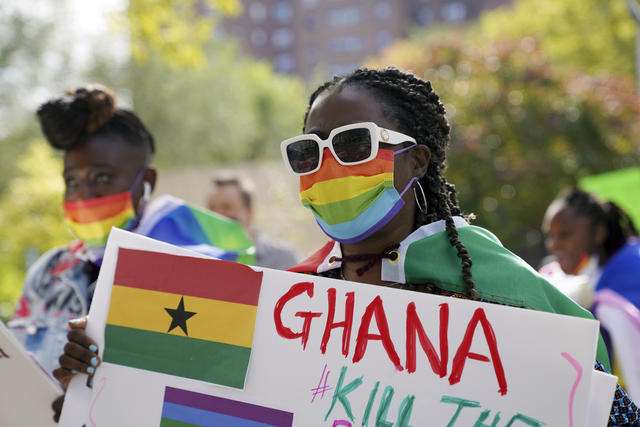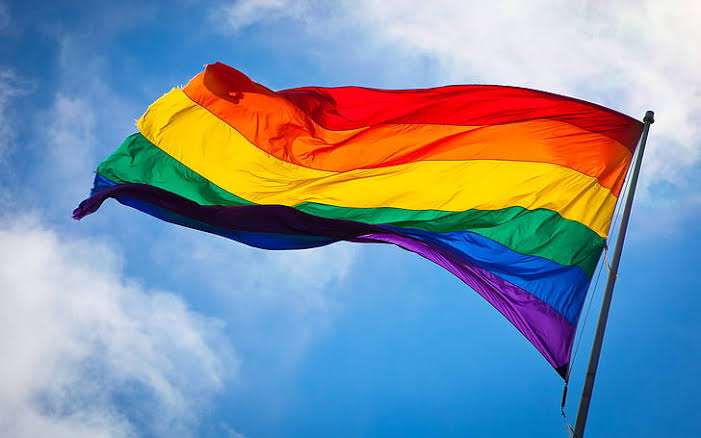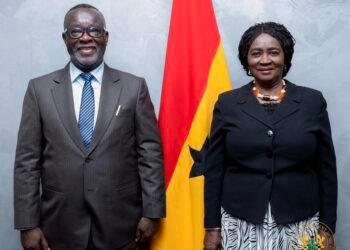Ghana’s political and diplomatic handling of LGBTQ+ rights has again taken center stage following strong public reactions to the country’s recent abstention from a crucial United Nations vote.
The debate reignited after Communications Minister Hon. Samuel Nartey George expressed deep dissatisfaction with the government’s decision to withhold support from a UN resolution aimed at protecting LGBTQ+ individuals from discrimination and violence.
Hon. Sam George, who is also the lead sponsor of the Human Sexual Rights and Family Values Bill—often referred to as the anti-LGBTQ+ Bill—reaffirmed his uncompromising stance on the issue.
He referenced Ghana’s earlier statement in the UN debate, stating that he fully aligns with the position that was communicated.
“I cannot, however, in good conscience, understand the decision to abstain in the subsequent vote. That vote is in conflict with Ghana’s espoused position and my conscience. We MUST at all times make our position clear and unambiguous.
“Like I indicated earlier, together with my Colleagues in Parliament, we have resubmitted the same Bill that was passed last year by Parliament, which Nana Addo Dankwa Akufo-Addo refused to sign.”
Hon. Samuel Nartey George
Accordingly, he called on Parliament to expedite the approval process to ensure that the bill can soon be presented to President John Dramani Mahama for assent.

Accordingly, the minister strongly cautioned against sacrificing Ghana’s deeply rooted cultural and moral values in response to any form of foreign pressure or external influence.
He stressed that the nation’s identity and integrity should not be negotiated or diluted for diplomatic convenience or global approval.
Reaffirming the urgency of defending Ghana’s core principles, he insisted that the country must be unwavering in its commitment to uphold truth, conscience, and long-standing societal norms.
In his view, especially on issues as delicate and consequential as LGBTQ+ rights, national decisions should be anchored in the values that reflect the will and conscience of the Ghanaian people.
Govt’s LGBTQ+ Vote Abstention, “Diplomatic Cowardice”
Meanwhile, the government has come under sharp scrutiny from human rights advocates and legal experts.
Lawyer and activist Richard Dela Sky took issue with the Ministry of Foreign Affairs’ explanation for the abstention, describing it as “a masterclass in strategic evasion.”
According to him, the official press release seemed designed to deflect attention rather than offer a transparent justification for Ghana’s stance.
Dela Sky criticized what he described as a pattern of political duplicity. He pointed out that the same government that previously fueled nationalistic fervor by advancing the anti-LGBTQ+ agenda now claims neutrality in international fora.
He argued that such behavior reveals a striking contradiction, questioning how a country can criminalize LGBTQ+ identities domestically while refraining from voting on resolutions that seek to protect such individuals from harm.

“To say the vote was not about LGBTQ+ rights is troubling intellectual dishonesty that will appeal only to the uninitiated. The resolution is precisely about protecting LGBTQ+ individuals from harm—something any nation claiming to uphold human rights should embrace.”
Richard Dela Sky
The decision to abstain, Dela Sky noted, was not a neutral act. Instead, it highlighted a dissonance between Ghana’s international diplomacy and its domestic political messaging.
He described the abstention as “the cowardice of calculated diplomacy,” contending that the government is trying to juggle international expectations with the political gains it has harvested from anti-LGBTQ+ rhetoric.
Furthermore, Dela Sky contended that the abstention did not reflect a principled or consistent foreign policy stance.

Instead, he portrayed it as a symptom of a government caught in the web of its own populist narrative, now struggling to maintain credibility on the global stage. “To abstain is not neutrality—it is the silence of uncertainty,” he concluded.
As debates over LGBTQ+ rights continue to shape Ghana’s domestic and foreign policy landscape, the path forward appears riddled with complexity.
On one hand, there is strong domestic support for traditional cultural values and legislation like the Human Sexual Rights and Family Values Bill. On the other hand, Ghana faces mounting international pressure to align with global human rights standards.
What remains clear is that the conversation around LGBTQ+ rights in Ghana is far from over.
As Parliament revisits the bill and global scrutiny intensifies, the country will need to navigate carefully between preserving its cultural identity and meeting international expectations of human rights compliance.
READ ALSO: Republic Bank Soars Nearly 10% as MTN Slips in Volatile GSE Trading Session























